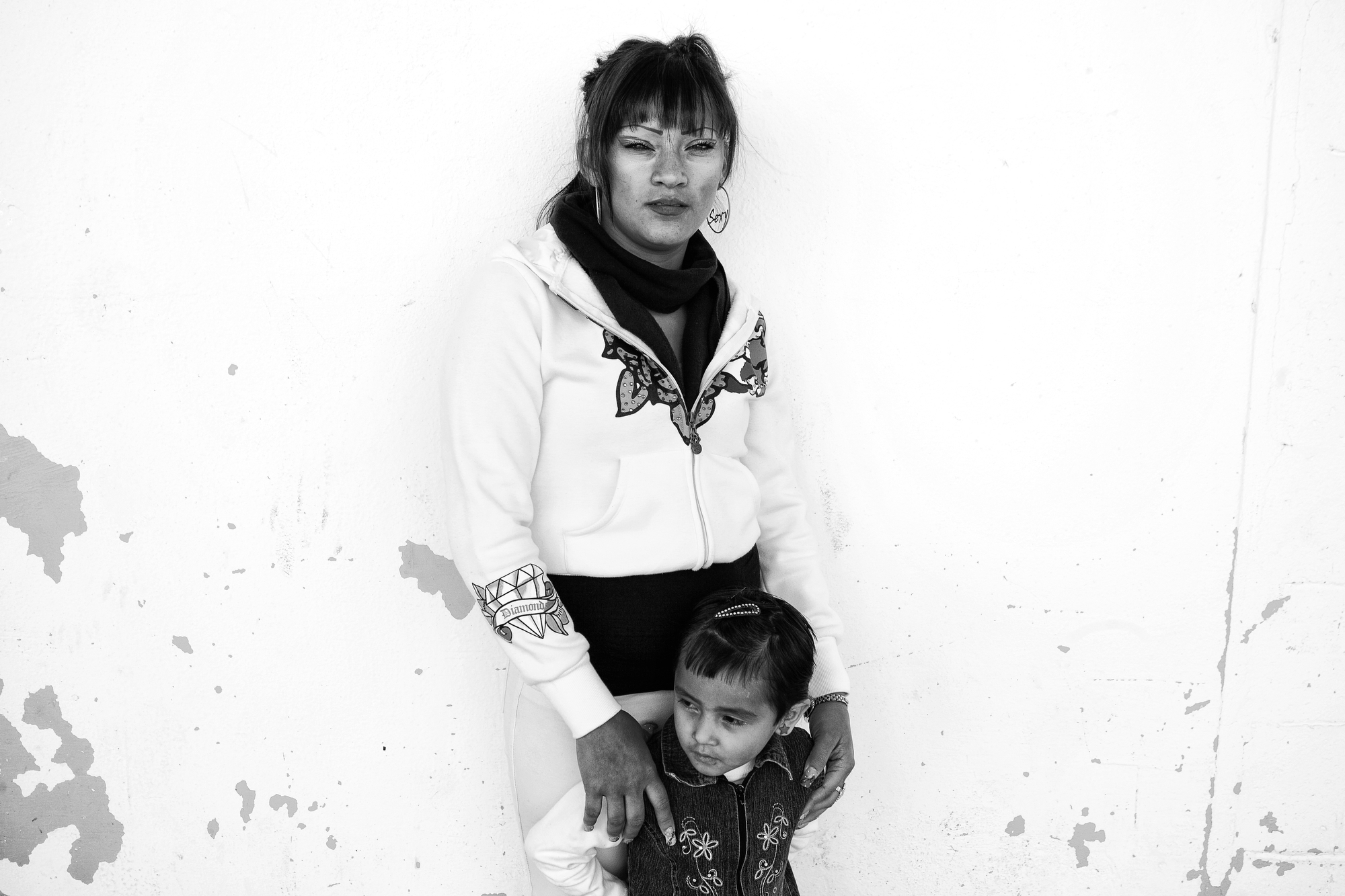
Juárez Women's Prison • Katie Orlinsky
Over the past three years there has been a 400 percent increase in the number of women imprisoned for federal crimes in Mexico. Ciudad Juarez is the most dangerous city in Mexico, plagued by drug war violence, not to mention poverty and unemployment, which has only escalated after the financial collapse. The rise of women’s involvement in narcotics related crime in Juarez has also escalated, directly linked to poverty and lack of employment opportunities.
The women’s prison of Ciudad Juarez, known as El Cereso (Centro de Readaptacion Social), currently contains 143 incarcerated women, 80 percent of which are there for narcotics related crime. The majority of female inmates are women of a very low economic status. Many of these women are young, uneducated, and vulnerable, easily tricked and used by men to become involved in smuggling and kidnapping because of their economic circumstances.
The expansion of the drug cartels into working directly with street gangs has also led to more female involvement. In a widely circulated video, Rogelio Amaya of the Juarez based gang La Linea says there are between 20 and 30 young women that are part of the gang and trained to kill. He says that they specifically use pretty teenagers in order to trick their opponents.

Maria Sol Zocoro, 42, in prison for homocide. As a result of Mexico's drug war, the number of women in prison for federal crimes has quadrupled in the past three years. In Mexico's deadliest city, Ciudad Juarez, an estimated 80 percent of female inmates are incarcerated for narcotics related crimes. The expansion of the drug cartels into street gangs has directly led to more involvement by women in crime this year, from girlfriends to family members to gang members themselves. It is now a known tactic for criminals to recruit pretty women in order to train them as assassins or use them to lure kidnapping victims. In addition, as more and more women become widows from the all-encompassing violence in Juarez, they are also also lured into criminal activity (illegal drug transportation in particular) as one of the only financial options available to support their family. Ciudad Juarez is the "front-line" of Mexico's Drug War, with 3,000 murdered in 2010 alone. The rise of women�s involvement in drug related crime is directly linked to poverty and lack of employment opportunities; systemic problems in Juarez that have only escalated after the financial collapse.
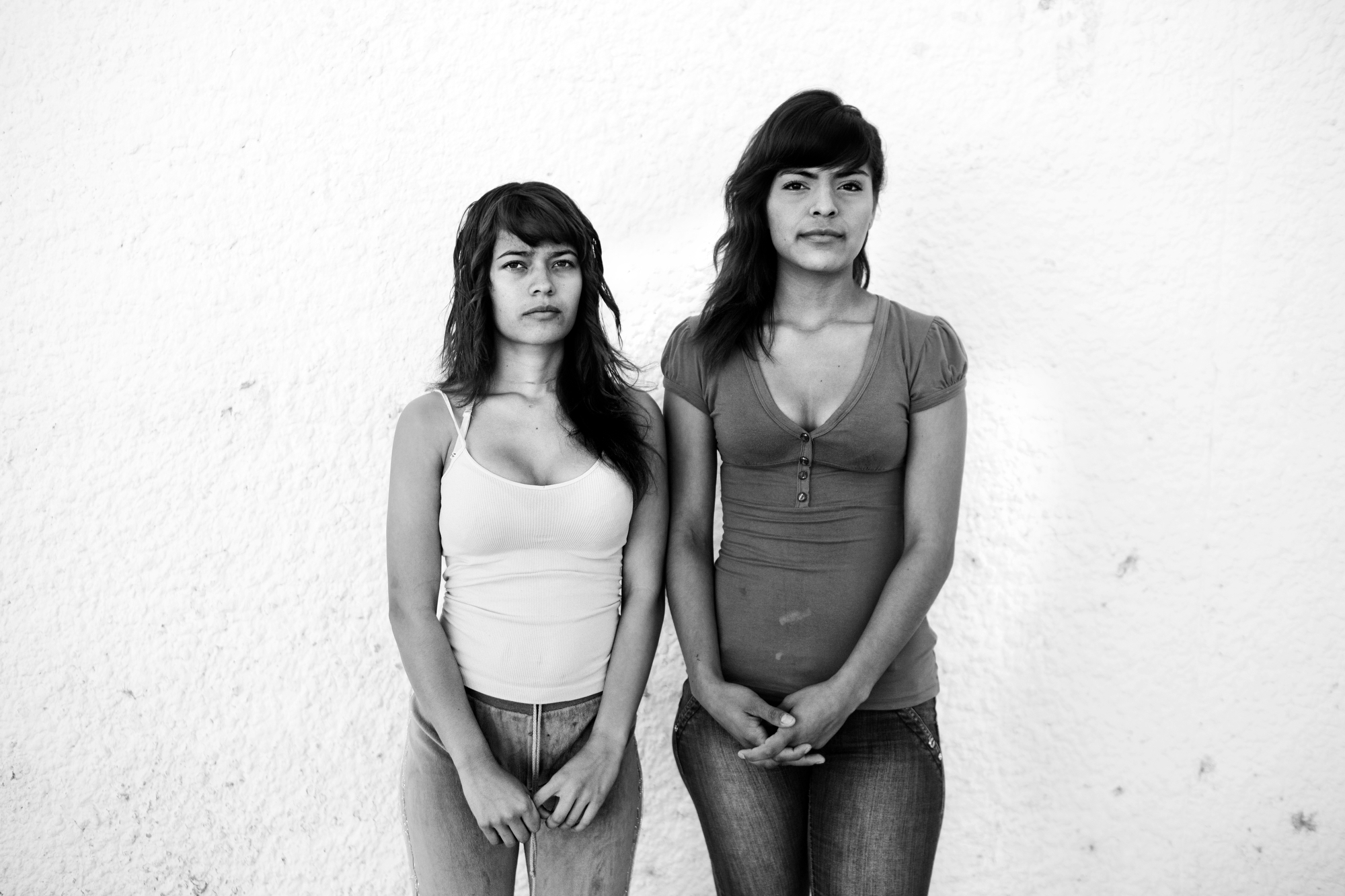
Claudia Ramirez Contreras, 21, and Eunice Ram�rez, 19, outside their prison cell in Ciudad Juarez, Mexico. The Ramirez sisters were models and party hostesses until they found themselves behind bars, accused of kidnapping. The young women would allegedly use their beauty to lure men into abductions as part of a kidnapping gang. The case of Eunice in particular has become famous throughout Mexico, used as an example of women's growing involvement in crime throughout the country. As a result of Mexico's drug war, the number of women in prison for federal crimes has quadrupled in the past three years. In Mexico's deadliest city, Ciudad Juarez, an estimated 80 percent of female inmates are incarcerated for narcotics related crimes. The expansion of the drug cartels into street gangs has directly led to more involvement by women in crime this year, from girlfriends to family members to gang members themselves. It is now a known tactic for criminals to recruit pretty women in order to train them as assassins or use them to lure kidnapping victims. In addition, as more and more women become widows from the all-encompassing violence in Juarez, they are also also lured into criminal activity (illegal drug transportation in particular) as one of the only financial options available to support their family. Photo by Katie Orlinsky. (Full image copyright Katie Orlinsky, Hold for Sunday Review).
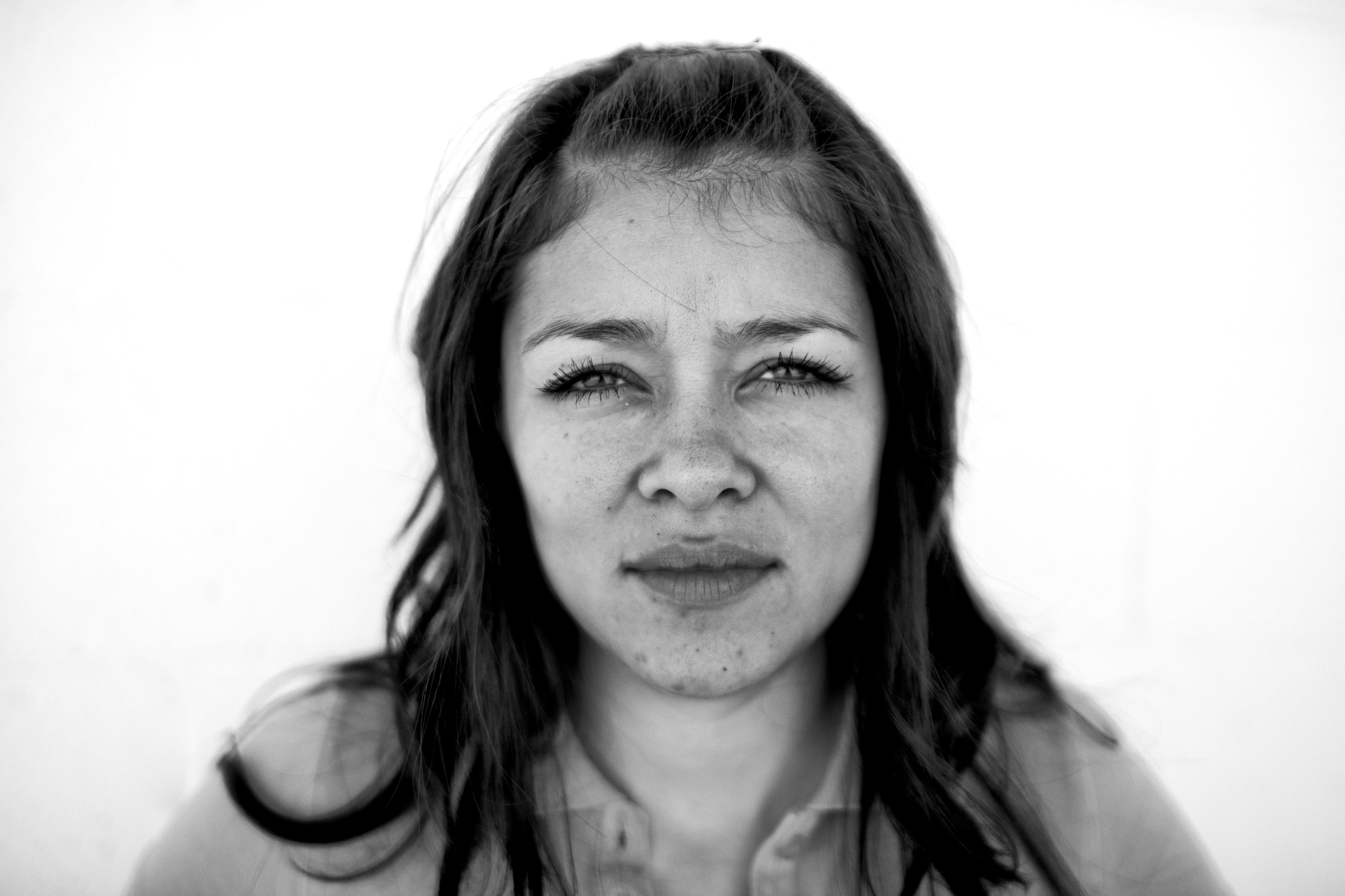
Yazm�n Mendoza, 27, in prison for drug trafficking. As a result of Mexico's drug war, the number of women in prison for federal crimes has quadrupled in the past three years. In Mexico's deadliest city, Ciudad Juarez, an estimated 80 percent of female inmates are incarcerated for narcotics related crimes. The expansion of the drug cartels into street gangs has directly led to more involvement by women in crime this year, from girlfriends to family members to gang members themselves. It is now a known tactic for criminals to recruit pretty women in order to train them as assassins or use them to lure kidnapping victims. In addition, as more and more women become widows from the all-encompassing violence in Juarez, they are also also lured into criminal activity (illegal drug transportation in particular) as one of the only financial options available to support their family. Ciudad Juarez is the "front-line" of Mexico's Drug War, with 3,000 murdered in 2010 alone. The rise of women�s involvement in drug related crime is directly linked to poverty and lack of employment opportunities; systemic problems in Juarez that have only escalated after the financial collapse. Photo by Katie Orlinsky. (Full image copyright Katie Orlinsky, Hold for Sunday Review).

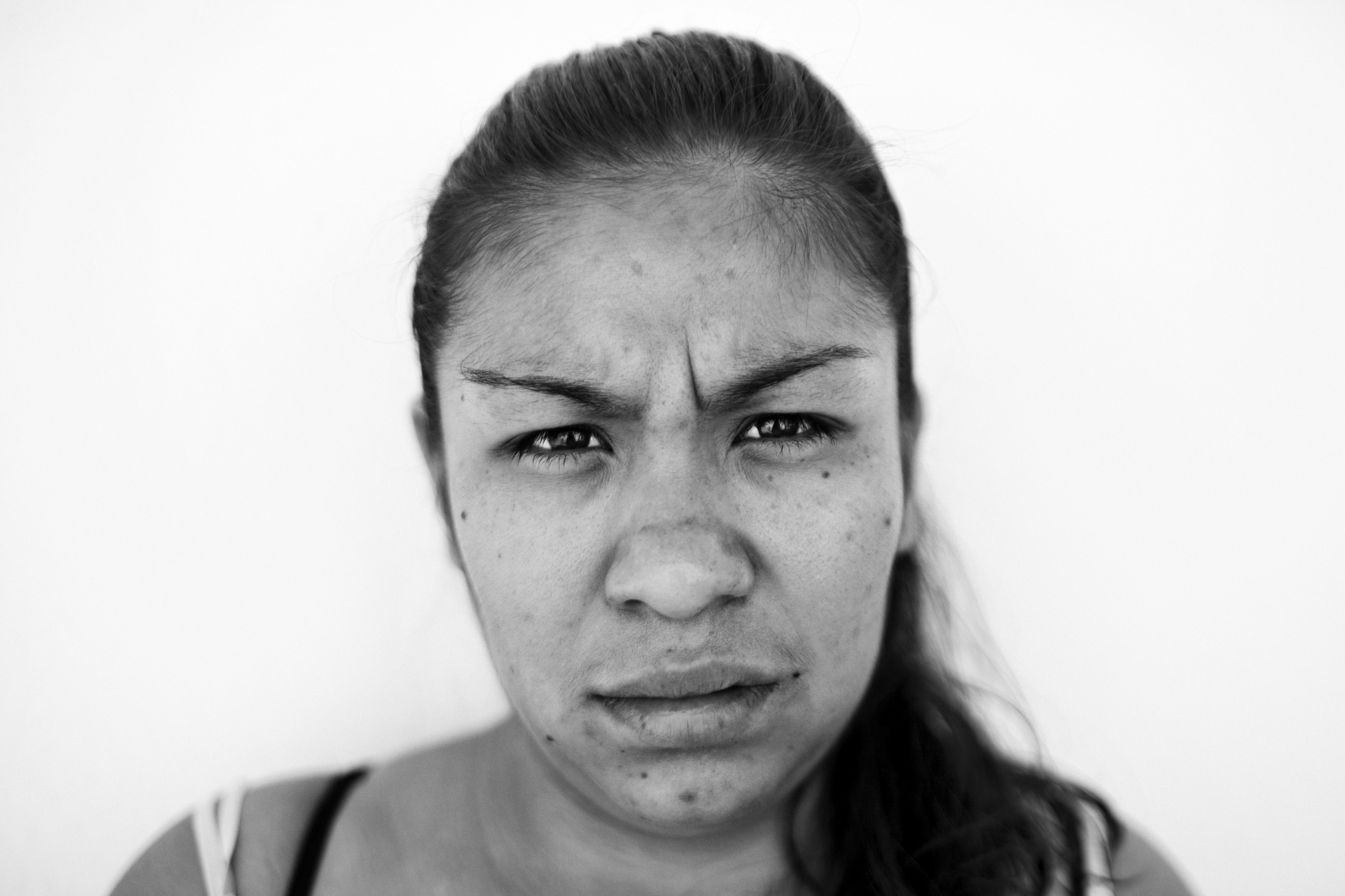
Laura �rika Mar, 23, in prison for homicide. As a result of Mexico's drug war, the number of women in prison for federal crimes has quadrupled in the past three years. In Mexico's deadliest city, Ciudad Juarez, an estimated 80 percent of female inmates are incarcerated for narcotics related crimes. The expansion of the drug cartels into street gangs has directly led to more involvement by women in crime this year, from girlfriends to family members to gang members themselves. It is now a known tactic for criminals to recruit pretty women in order to train them as assassins or use them to lure kidnapping victims. In addition, as more and more women become widows from the all-encompassing violence in Juarez, they are also also lured into criminal activity (illegal drug transportation in particular) as one of the only financial options available to support their family. Ciudad Juarez is the "front-line" of Mexico's Drug War, with 3,000 murdered in 2010 alone. The rise of women�s involvement in drug related crime is directly linked to poverty and lack of employment opportunities; systemic problems in Juarez that have only escalated after the financial collapse.
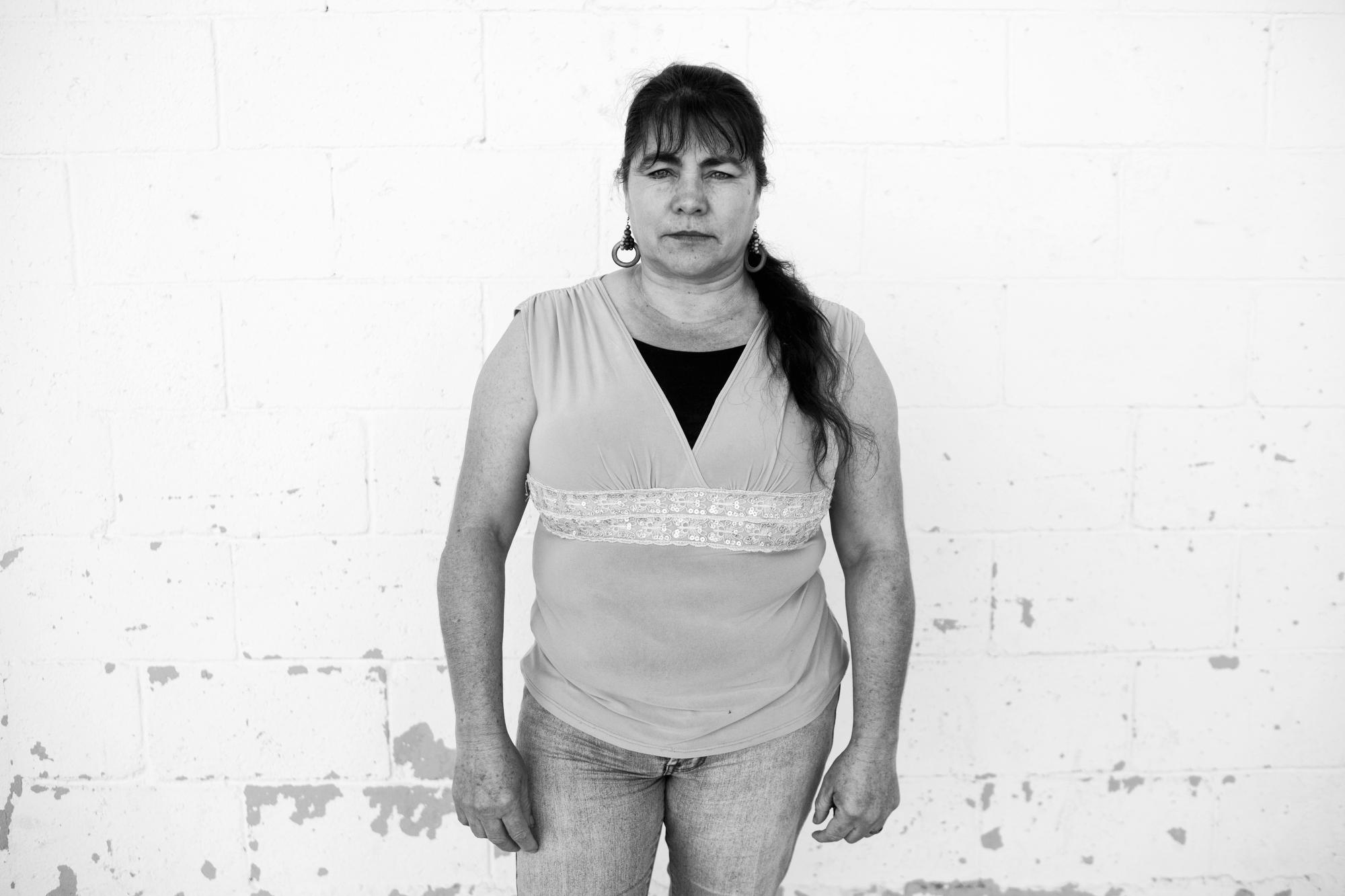
Lorena, 50, in prison for drug trafficking. As a result of Mexico's drug war, the number of women in prison for federal crimes has quadrupled in the past three years. In Mexico's deadliest city, Ciudad Juarez, an estimated 80 percent of female inmates are incarcerated for narcotics related crimes. The expansion of the drug cartels into street gangs has directly led to more involvement by women in crime this year, from girlfriends to family members to gang members themselves. It is now a known tactic for criminals to recruit pretty women in order to train them as assassins or use them to lure kidnapping victims. In addition, as more and more women become widows from the all-encompassing violence in Juarez, they are also also lured into criminal activity (illegal drug transportation in particular) as one of the only financial options available to support their family. Ciudad Juarez is the "front-line" of Mexico's Drug War, with 3,000 murdered in 2010 alone. The rise of women�s involvement in drug related crime is directly linked to poverty and lack of employment opportunities; systemic problems in Juarez that have only escalated after the financial collapse.
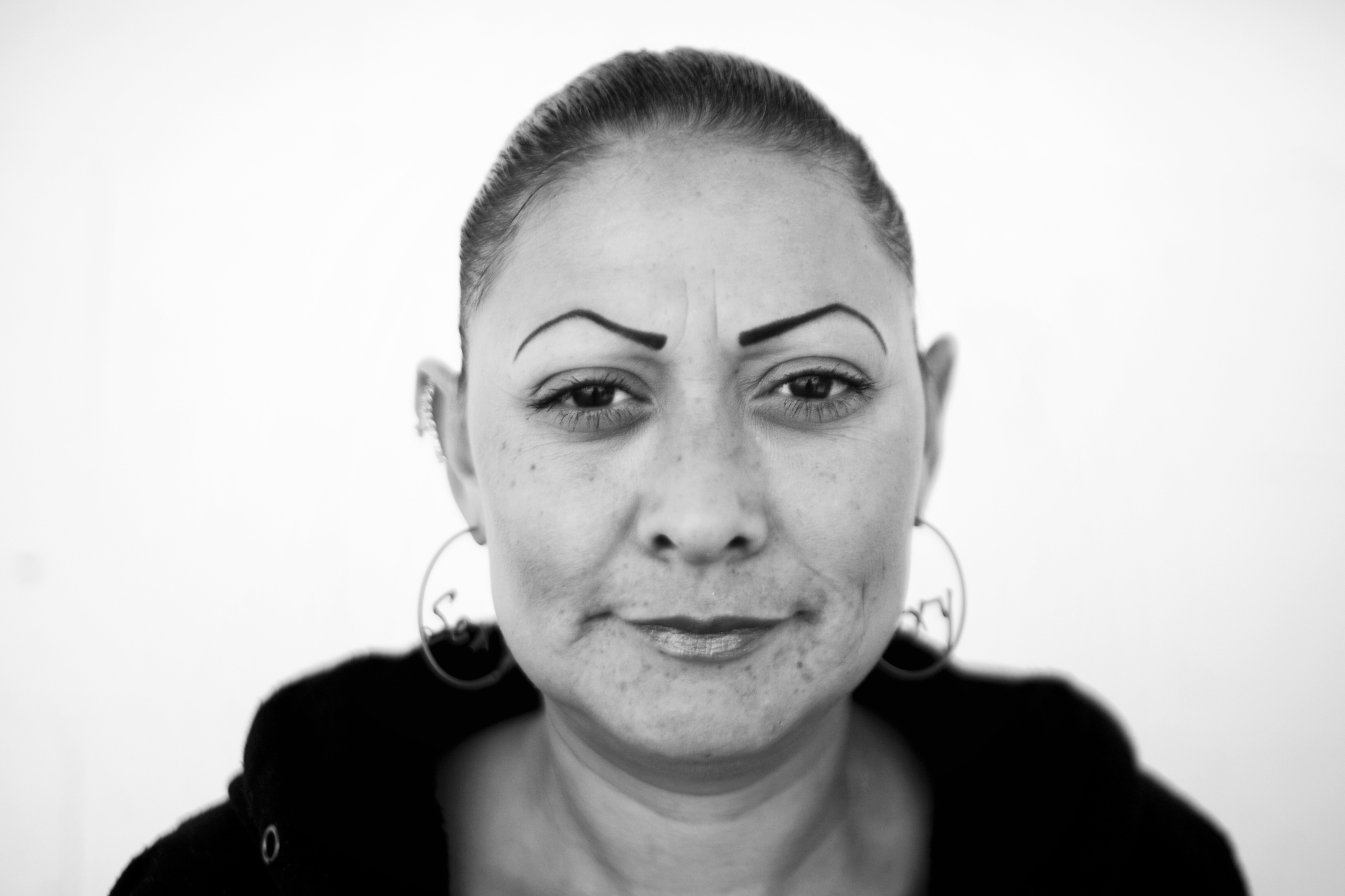
Abril Alvarado Ortega, 32, in prison for drug trafficking. As a result of Mexico's drug war, the number of women in prison for federal crimes has quadrupled in the past three years. In Mexico's deadliest city, Ciudad Juarez, an estimated 80 percent of female inmates are incarcerated for narcotics related crimes. The expansion of the drug cartels into street gangs has directly led to more involvement by women in crime this year, from girlfriends to family members to gang members themselves. It is now a known tactic for criminals to recruit pretty women in order to train them as assassins or use them to lure kidnapping victims. In addition, as more and more women become widows from the all-encompassing violence in Juarez, they are also also lured into criminal activity (illegal drug transportation in particular) as one of the only financial options available to support their family. Ciudad Juarez is the "front-line" of Mexico's Drug War, with 3,000 murdered in 2010 alone. The rise of women�s involvement in drug related crime is directly linked to poverty and lack of employment opportunities; systemic problems in Juarez that have only escalated after the financial collapse.
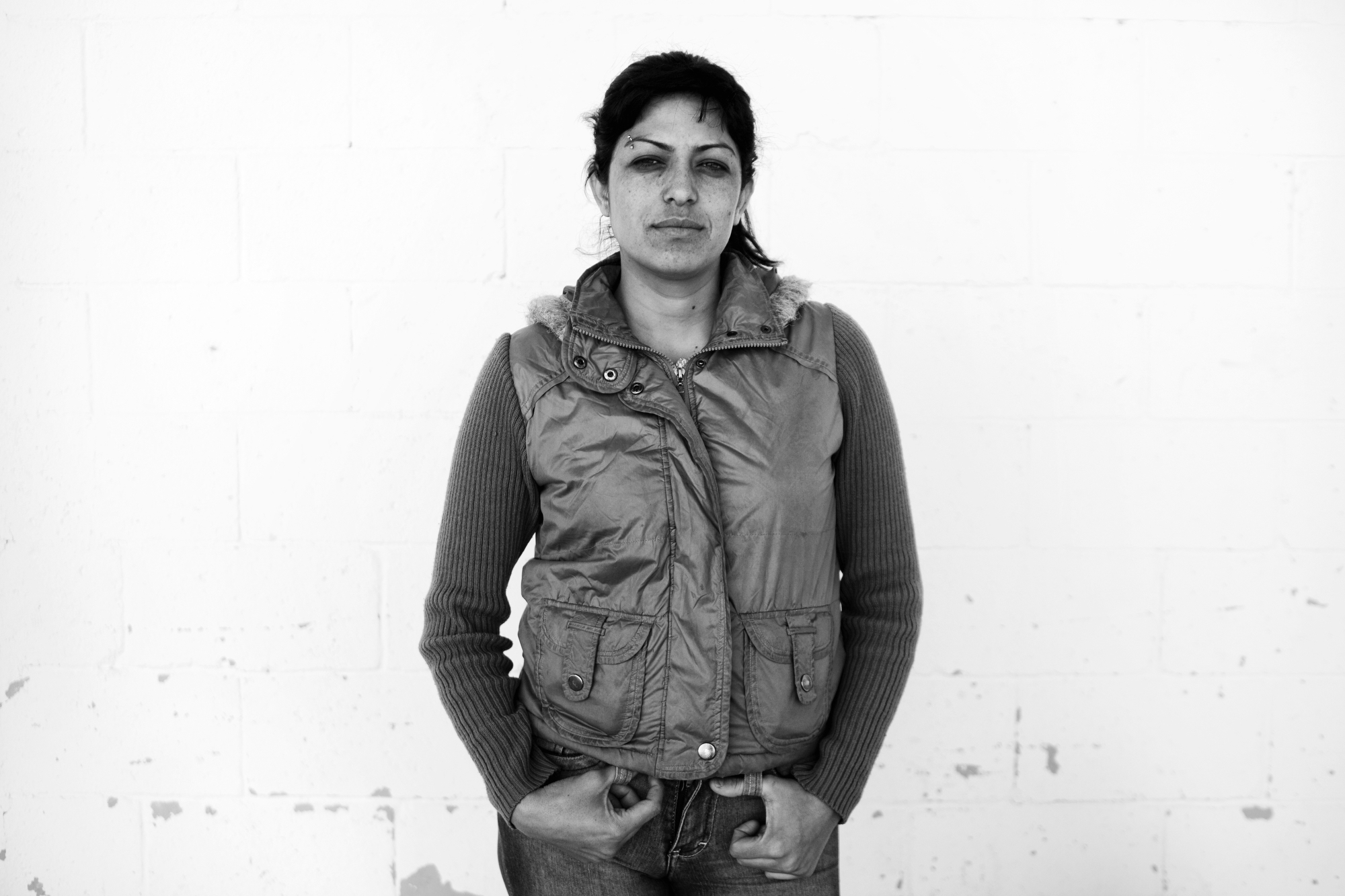
Julia Fragozo, 28, in prison for drug trafficking. As a result of Mexico's drug war, the number of women in prison for federal crimes has quadrupled in the past three years. In Mexico's deadliest city, Ciudad Juarez, an estimated 80 percent of female inmates are incarcerated for narcotics related crimes. The expansion of the drug cartels into street gangs has directly led to more involvement by women in crime this year, from girlfriends to family members to gang members themselves. It is now a known tactic for criminals to recruit pretty women in order to train them as assassins or use them to lure kidnapping victims. In addition, as more and more women become widows from the all-encompassing violence in Juarez, they are also also lured into criminal activity (illegal drug transportation in particular) as one of the only financial options available to support their family. Ciudad Juarez is the "front-line" of Mexico's Drug War, with 3,000 murdered in 2010 alone. The rise of women�s involvement in drug related crime is directly linked to poverty and lack of employment opportunities; systemic problems in Juarez that have only escalated after the financial collapse. Photo by Katie Orlinsky. (Full image copyright Katie Orlinsky, Hold for Sunday Review).
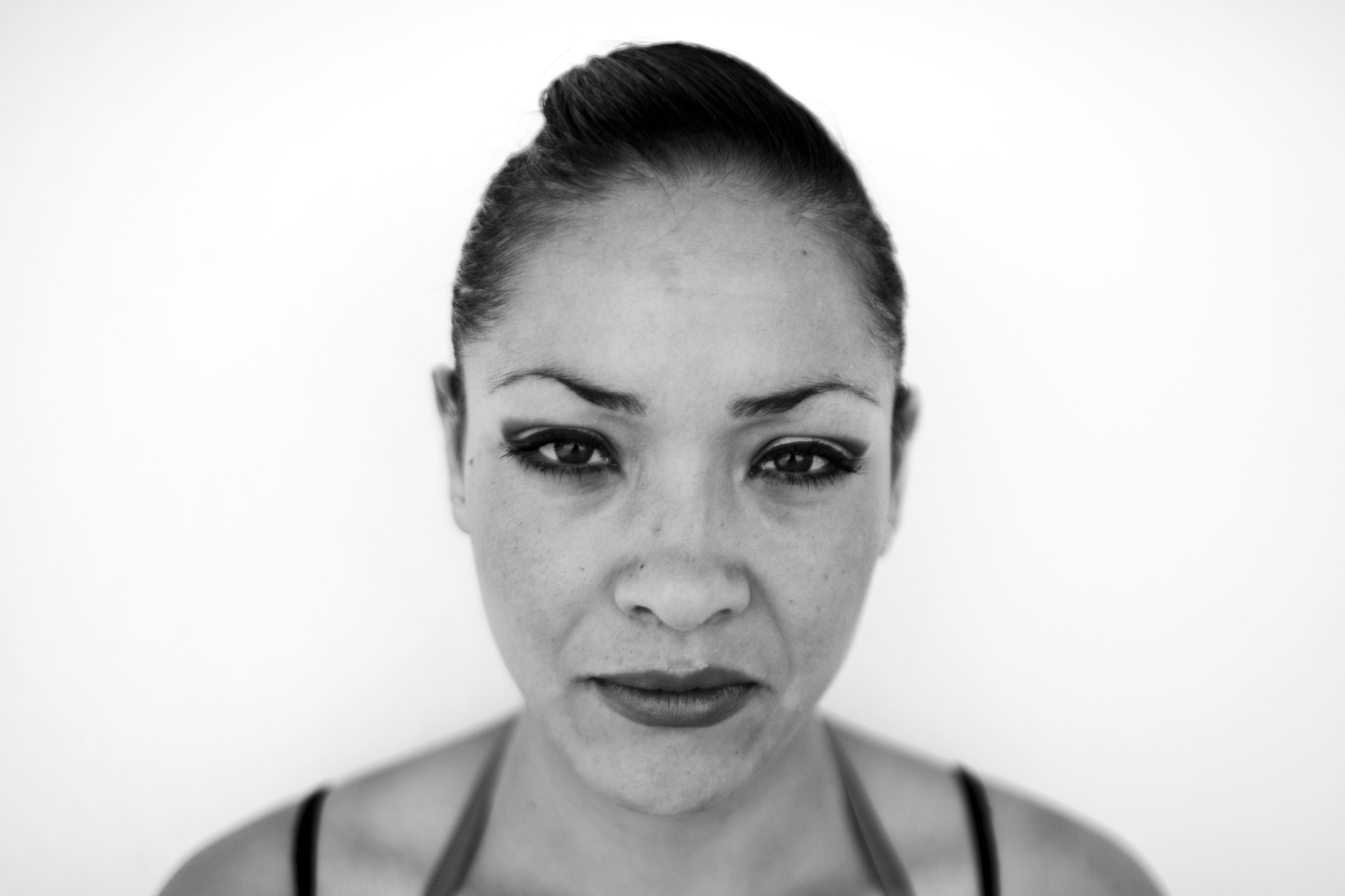
Carla Soloria, 27, in prison for drug and weapons trafficking. As a result of Mexico's drug war, the number of women in prison for federal crimes has quadrupled in the past three years. In Mexico's deadliest city, Ciudad Juarez, an estimated 80 percent of female inmates are incarcerated for narcotics related crimes. The expansion of the drug cartels into street gangs has directly led to more involvement by women in crime this year, from girlfriends to family members to gang members themselves. It is now a known tactic for criminals to recruit pretty women in order to train them as assassins or use them to lure kidnapping victims. In addition, as more and more women become widows from the all-encompassing violence in Juarez, they are also also lured into criminal activity (illegal drug transportation in particular) as one of the only financial options available to support their family. Ciudad Juarez is the "front-line" of Mexico's Drug War, with 3,000 murdered in 2010 alone. The rise of women�s involvement in drug related crime is directly linked to poverty and lack of employment opportunities; systemic problems in Juarez that have only escalated after the financial collapse. Photo by Katie Orlinsky. (Full image copyright Katie Orlinsky, Hold for Sunday Review).
PROJECTS
Juárez Women's Prison
By Katie Orlinsky
Over the past three years there has been a 400 percent increase in the number of women imprisoned for federal crimes in Mexico. Ciudad Juarez is the most dangerous city in Mexico, plagued by drug war violence, not to mention poverty and unemployment, which has only escalated after the financial collapse. The rise of women’s involvement in narcotics related crime in Juarez has also escalated, directly linked to poverty and lack of employment opportunities.
The women’s prison of Ciudad Juarez, known as El Cereso (Centro de Readaptacion Social), currently contains 143 incarcerated women, 80 percent of which are there for narcotics related crime. The majority of female inmates are women of a very low economic status. Many of these women are young, uneducated, and vulnerable, easily tricked and used by men to become involved in smuggling and kidnapping because of their economic circumstances.
The expansion of the drug cartels into working directly with street gangs has also led to more female involvement. In a widely circulated video, Rogelio Amaya of the Juarez based gang La Linea says there are between 20 and 30 young women that are part of the gang and trained to kill. He says that they specifically use pretty teenagers in order to trick their opponents.
Publications
The Women of Mexico's Drug War, The Atlantic
Portraits of Women Incarcerated in Mexico's Ciudad Juárez Women's Prison, Feature Shoot
